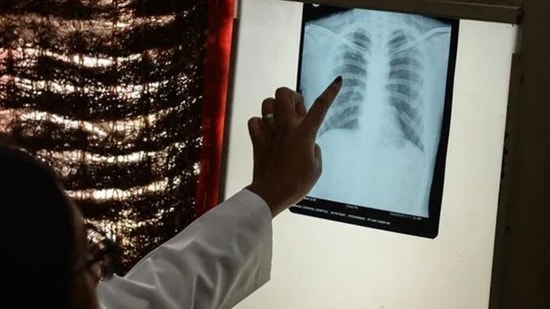World Tuberculosis Day 2022: Do not ignore these common symptoms of TB
World Tuberculosis Day 2022: One of the most common symptoms associated with tuberculosis is long-lasting cough that persists for more than 2-3 weeks. Here are other common symptoms you should watch out for.
One of the most common symptoms associated with tuberculosis is long-lasting cough that persists for more than 2-3 weeks. In pandemic times, it's all the more imporant to pay close attention to other symptoms of TB that can be distinguished from Covid. First and foremost, unlike dry cough in Covid, tuberculosis is associated with sputum production which is a mix of saliva and mucus from the throat or lungs. On World Tuberculosis Day, we asked experts about other common symptoms that indicate tuberculosis. (Also read: World Tuberculosis Day 2022: Date, theme, history, significance of the day)

What is tuberculosis and how does it affect you
When an infected individual coughs, sneezes, or laughs, the bacteria Mycobacterium Tuberculosis travels through the air from one person to another, causing TB.
"Despite the ease with which the bacterium can spread, contracting TB infection is difficult. It most usually affects the lungs, but it can also affect the lymph glands, belly, spine, joints, and other regions of the body," says Dr K S Satish, Senior Consultant - Pulmonology, Fortis Hospitals, Cunningham Road.
Types of tuberculosis
Tuberculosis bacteria are transmitted from one person to the other via tiny droplets discharged into the air by coughs and sneezes. Not all people infected by this bacterium would get sick, some of them would be asymptomatic.
"People with latent tuberculosis do not get sick, show no symptoms, therefore disease does not spread to others. However, if the person's immunity is compromised for some reason, the infection might flare up as active tuberculosis. So, it is very important to stay healthy and maintain your immunity, says Dr Harish Chafle, Senior Consultant - Pulmonology and Critical Care at Global Hospital, Parel, Mumbai.
Here are the different types of TB as explained by Dr K S Satish
In case of active tuberculosis, often known as tuberculosis, makes one unwell and, in most cases, can spread to others. The illness might manifest weeks or years after being infected with tuberculosis bacteria.
The most prevalent kind of tuberculosis is pulmonary tuberculosis, affecting the lungs, whereas extrapulmonary tuberculosis occurs when tuberculosis affects regions of the body other than the lungs and is more common in people with compromised immune systems making it hard to keep the illness contained in a single place.
Common symptoms of TB
The symptoms of tuberculosis vary depending on where the germs are developing in the body. The bacteria that causes tuberculosis usually grows in the lungs (pulmonary TB). Dr Harish Chafle explains TB symptoms.
The symptoms of tuberculosis in the lungs include:
* A bad cough that lasts 3 weeks or longer
* Pain in the chest
* Coughing up blood or sputum (phlegm from deep inside the lungs)
Other symptoms of TB disease are
* Weakness or fatigue
* Weight loss
* No appetite
* Chills
* Fever
* Sweating at night
Why TB needs to be treated immediately
"The longer people wait, the worse the condition becomes. Although the stigma associated with tuberculosis has decreased dramatically, people must remain vigilant, knowledgeable, and responsible when it comes to recognizing signs and seeking treatment early as it is a treatable disease. Drug-sensitive tuberculosis is treated with a six-month course of medicines, requiring a treatment regimen with at least 4 medications administered under expert supervision," says Dr Satish.
When should you see a doctor?
Symptoms such as fever, unexplained weight loss, drenching night sweats, or a persistent cough are frequently associated with tuberculosis; however, they can also be caused by other illnesses. If you suspect you've been exposed to tuberculosis, consult your doctor, concludes Dr Satish.
Catch your daily dose of Fashion, Health, Festivals, Travel, Relationship, Recipe and all the other Latest Lifestyle News on Hindustan Times Website and APPs.



